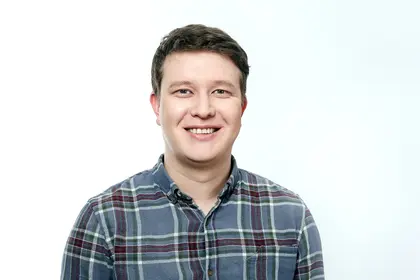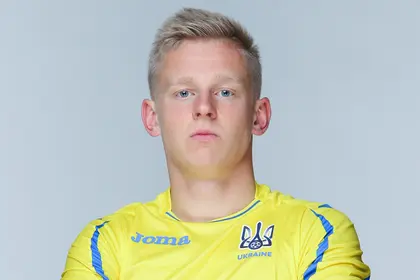Age: 26
Education: Filmmaking, Ivan Karpenko-Karyi National University of Theater, Film and Television
Profession: Film director
Did you know? He is a member of the European Film Academy.
Nariman Aliev’s film “Homeward” is often called the movie of the year in Ukraine. Although it’s his directorial feature film debut, the picture has achieved astounding success.
JOIN US ON TELEGRAM
Follow our coverage of the war on the @Kyivpost_official.
It’s a deeply personal movie for the Crimean Tatar filmmaker, who brought the longstanding struggles of his people to the screen. “It’s a big tragedy of a small people,” Aliev said.
As a child, Aliev wasn’t a big movie fan. He graduated from a school in the small Crimean village of Petrivka in 2009. To his family’s surprise, he decided to apply to Ukraine’s top film school, Ivan Karpenko-Karyi National University of Theater, Film and Television in Kyiv.
Aliev says the decision was rather irrational. In between entrance exams, he talked to his peers and soon realized his knowledge of cinema was pretty superficial.
“The applicants were in all seriousness discussing (legendary Russian filmmaker Andrei) Tarkovsky,” he said.
Aliev didn’t get accepted, so he entered the private Institute of Screen Arts in Kyiv.
In his first years, he didn’t have a clear understanding of what he was filming and did a lot of “weird meaningless work.”
After his teacher blasted one of Aliev’s ideas, he experienced a crisis. He decided to follow the teacher’s advice to focus on what he knew well. For Aliev, it was Crimea.

Yuliya Levchenko: Star athlete conquers international competitions
That started his transformation. In the next years, he wrote and directed a series of three short films titled “Crimean Stories.”
Russia’s annexation of the Crimean peninsula in 2014 only strengthened Aliev’s motivation to tell stories about his homeland and its indigenous people, Crimean Tatars.
“It was a time when nobody knew what to do,” he said. “You lost your home.”
Aliev’s relatives still live in Crimea, but he can’t afford the risk of visiting the Russian-occupied territory. Separated from family, the director came up with the idea to create “Homeward,” or “Evge” in its original Crimean Tatar language.
“I conveyed the emotions that have been swirling in me of a certain defeat, hope, tranquility, when you are alone in the whole world,” he said.
Aliev co-wrote the script and directed the film, which follows a Crimean Tatar family whose oldest son is killed in Russia’s war against Ukraine. His father, Mustafa, who lives in Russian-occupied Crimea, comes to Kyiv to retrieve his son’s body and bury him in his homeland. Mustafa forces his younger son, Alim, to accompany him on a road trip across central Ukraine.
“Homeward” premiered at Cannes in May. In Ukraine, it debuted at the Odesa International Film Festival in July, where it received a standing ovation and shared the main prize.
“Homeward” has been praised for its directing, script, cinematography and the performances of its leads: Crimean Tatar actor and director Akhtem Seitablayev as Mustafa and newcomer Remzi Bilialov — Aliev’s cousin — as Alim.
Shot almost entirely in Crimean Tatar, the film introduces the ethnic group’s language to both Ukrainians and foreigners.
The Ukrainian Oscar Committee selected “Homeward” as its submission for Best International Feature Film for the 92nd Academy Awards.
Aliev hopes the film will resonate with viewers on an emotional level. If it also educates them about the Tatars’ struggle, that’s also a win.
“And if those people unfamiliar with the context will have a desire to learn more, we will be happy,” he said. “And, I think, we will have reached our goal.”
You can also highlight the text and press Ctrl + Enter











